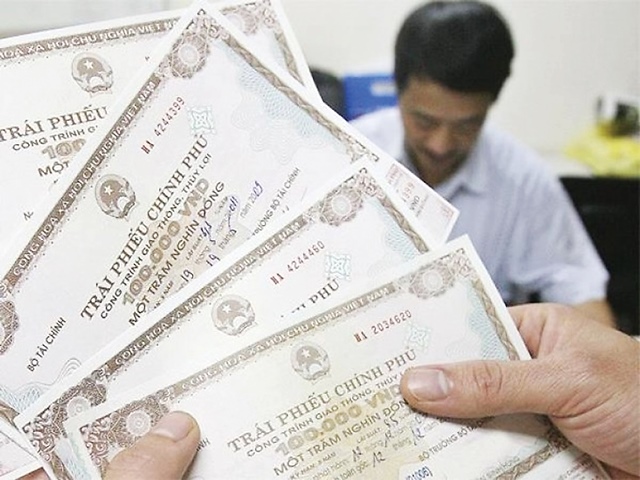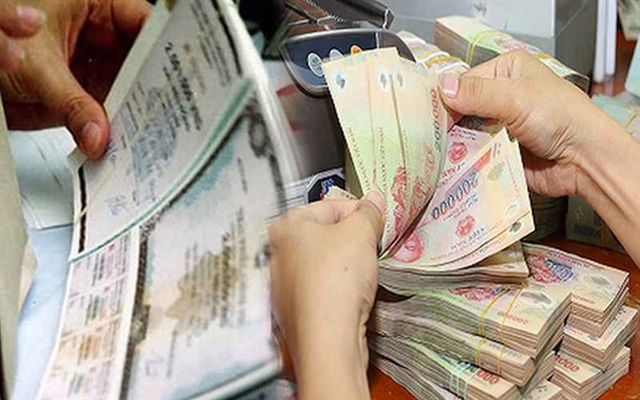Initiatives to strengthen Vietnam government bonds
Initiatives to strengthen Vietnam government bonds
Last July, Moody’s upgraded its rating on Vietnam’s government bonds for the first time since 2005, from B2 to B1, thanks to improvements in the country’s economic stability.

Fitch Ratings soon followed by upgrading Vietnam from B+ to BB- in November. These were good achievements, but we hope that the government will not be satisfied and will set a goal to achieve investment grade status. It should work actively with the rating agencies to lay out an agenda for achieving this within the next 10 years.
An investment grade rating is defined as a rating of Baa3 by Moody’s, or an equivalent rating of BBB- by Standard & Poor’s or Fitch. It is an important benchmark because many global investment adhere to a policy of only investing in investment grade bonds, and are therefore currently prohibited from investing in Vietnamese government bonds. Furthermore, the debt ratings of companies within a country are normally constrained by the “sovereign ceiling”, meaning that it is very difficult for a Vietnamese company to obtain a debt rating higher than that of the government. Global investors with policies against holding non-investment grade debt therefore also cannot buy bonds from Vietnamese companies.
We can see the impact of being an investment grade country on government bond yields by looking at our neighbours. Currently, Indonesia and the Philippines are rated Baa3, the lowest investment grade rating. Thailand is two levels higher at Baa1.
The yield on Thai government 5-year bonds is 2.1 per cent, 3.3 per cent above its inflation rate. Filipino 5-year bonds trade at 3.63 per cent, approximately 3 per cent higher than the inflation rate of 0.6 per cent. Indonesian 5-year bonds trade at 9.23 per cent, which seems high until you compare this to the inflation rate of 7.18 per cent. In contrast, Vietnamese 5-year bonds trade at 6.7 per cent, more than 6 per cent above the current inflation rate. The reason for our high real bond yields is our low sovereign rating. With an investment grade rating and stable inflation, our government’s local-currency borrowing cost could drop below 4 per cent, which would help to reduce the deficit.
Vietnamese companies would also benefit from an improved rating. Currently, foreign direct investment (FDI) companies in Vietnam have an advantage over Vietnamese companies due to their ability to access global capital at cheaper costs. Lower borrowing costs make expansion more affordable and improve profitability.
The government has taken strong steps in order to achieve the latest round of ratings upgrades. The first was to bring inflation under control to its 1H/2014 level of only 4.98 per cent. Since then, Vietnam has had some help in bringing inflation even lower due to global oil prices, which have declined from $107 per barrel in June 2014 to the current price of $47 per barrel. The result has been for domestic petrol prices to decline by 31.3 per cent correspondingly. This affects all sectors of the economy, especially the transportation of food products, and helps to lower inflation. The country’s strong current account balance of $9.7 billion has also helped by bringing in $8.4 billion of foreign reserves in 2014. Additionally, although the dong has devalued by 3 per cent against the dollar this year (along with a 2 per cent increase in the trading band), it has performed very well compared to the currencies of countries that export to Vietnam (notably, China), which has kept the cost of imported goods under control.
Still, assuming we are not satisfied with our B1 and BB- rating, what must Vietnam do in order to reach investment grade? Moving from the current level of B1 at Moody’s, for example, up seven levels to Baa3 will not be easy.
To achieve this, the government must address bank sector reform. The government has set out some reforms with Circular 02 and Circular 09 and the establishment of the Vietnam Asset Management Company (VAMC). Recently, with Directive 02/2015, dated January 27, and Document 5057, dated July 6, the central bank has been urging other banks to sell bad debts to the VAMC and settle non-performing loans (NPLs) by themselves. In 2015, Decree 34 and subsequent Circular 14 have provided more authorities and tools for the VAMC in its mandate. Through the end of August, the VAMC has purchased VND280 trillion ($12.5 billion) of NPLs. Bank NPLs have therefore declined sharply by VND305.3 trillion ($13.6 billion) from September 2012 to VND160 trillion ($7.12 billion) at the end of June 2015. The NPL ratio fell from its peak of 17 to 3.72 per cent during the same time and is likely to drop below 3 per cent this year as targeted.
The government should also improve the budget operation. Vietnam’s Ministry of Finance (MoF) has suggested to cut regular expenditures of ministries and government organisations by 10 per cent from the expected 2015 levels, except for expenditures for special tasks. The expenditures increased 8.2 per cent year-on-year, which is much lower than the growth of state revenue. This brought the deficit to VND115.18 trillion ($5.26 billion), equivalent to only 51 percent of this year’s plan. Depite plunging oil prices and struggling bond issuance, the MoF has stated that the state budget will reach or even exceed the target.
Foreign reserves are also an important part of the sovereign rating. The government’s apparent strategy to increase reserves by joining free trade agreements and encouraging FDI should help to continue building reserves and integrating Vietnam more fully into the global marketplace, which can only be viewed favourably by the rating agencies.





















